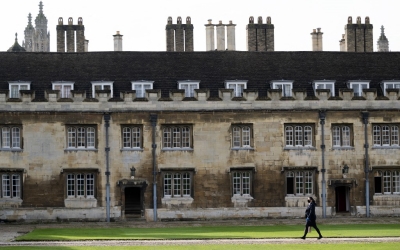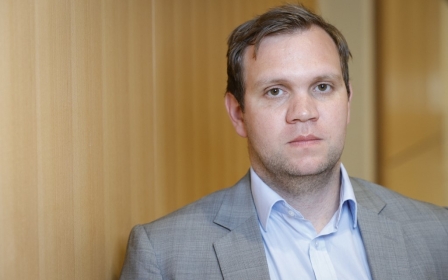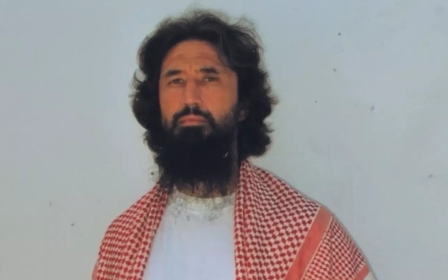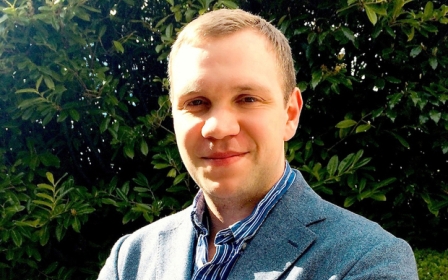UK apologises to Matthew Hedges after watchdog finds Foreign Office 'ignored' signs of UAE torture
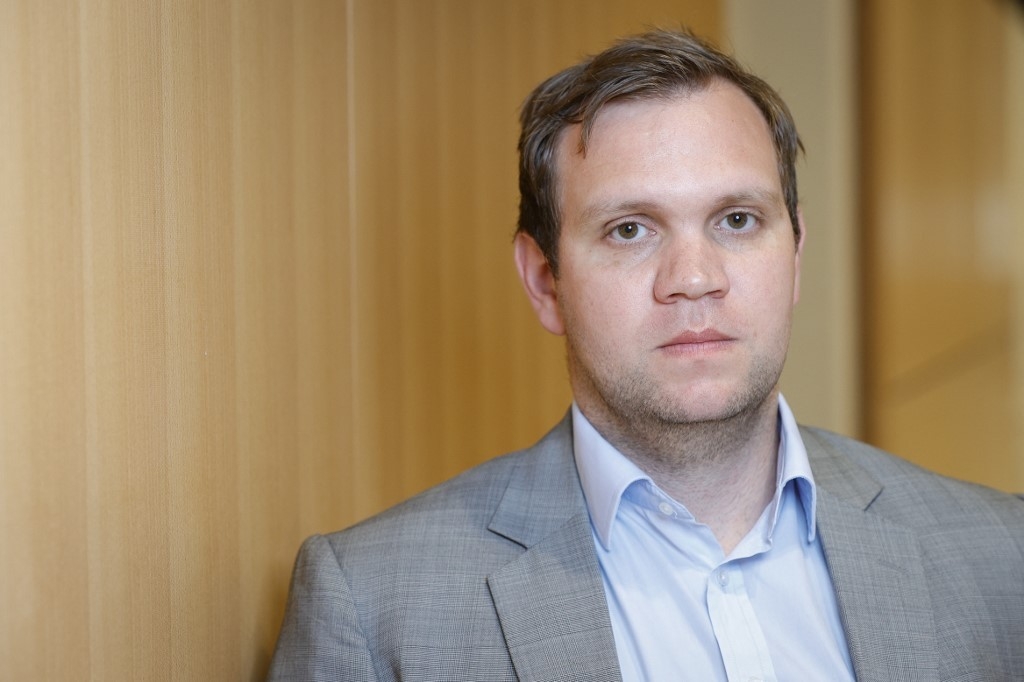
The UK's Foreign, Commonwealth and Development Office has apologised to a British academic tortured by the United Arab Emirates after the UAE accused him of spying for the United Kingdom.
Matthew Hedges confirmed on Monday the FCDO apologised to him after an inquiry by the Parliamentary and Health Services Ombudsman (PHSO) found that Foreign Office officials ignored "obvious signs of torture" when visiting Hedges in prison in Abu Dhabi.
A letter given to Middle East Eye showed that last Thursday, a senior official sent a letter to Hedges acknowledging the PHSO report and said he "recognised the profound impact" of Hedge's detention in the UAE and the "injustice" he faced.
"I recognise that we did not fully follow our guidance on torture and mistreatment and that this failure has left you uncertain as to whether more could have been done on your behalf," wrote Philip Barton, the permanent-under-secretary to the FCDO.
Barton added that the FCDO planned to review its internal guidance on allegations or concerns about torture and mistreatment.
A spokesperson for the FCDO confirmed to MEE that it accepted elements of the ombudsman's findings, apologised to Hedges and planned to pay the compensation amount of £1,500.
'We recognise that Mr Hedges and his family’s experience was a distressing one that has had a profound impact'
- FCDO spokesperson
"We recognise that Mr Hedges and his family’s experience was a distressing one that has had a profound impact," said the FCDO spokesperson.
“The ombudsman rejected elements of the complaint and its report concluded we did act correctly in seeking access to Mr Hedges. We always aim to act in the best interest of the individual and acting without their consent in raising concerns about torture and mistreatment creates unacceptable risks.
“Helping British nationals abroad is a top priority and we offer advice and support at any time of day or night, helping over 20,000 British people and their families every year.”
'Watershed moment'
Describing the apology as a "watershed moment", Hedges said his experience demonstrated the FCDO had "failed in their obligations towards" him and other British nationals detained abroad.
"I would have hoped that the FCDO would take the initiative to learn from their own mistakes without needing an oversight body to force them to do so," Hedges said in a statement.
"This apology, unfortunately, does not change the fact that I still have a criminal record for espionage on behalf of the British government.
'This apology, unfortunately, does not change the fact that I still have a criminal record for espionage on behalf of the British governmen'
- Matthew Hedges
"A false allegation which was refuted by all levels of the UK government at the time of my detention, including Alex Younger, the head of MI6 who said he ‘genuinely can't understand how our Emirati partners came to the conclusions they came.
"I cannot overstate how fundamental it is that the FCDO improves its procedures for protecting British citizens that are detained abroad, especially for those like Jaghtar Singh Johal in India, and Alaa Abd El-Fattah in Egypt, who, like me, have suffered torture at the hands of the authorities holding them – also British allies."
Hedges, then a Durham University doctoral candidate, was detained in the UAE in May 2018 and accused of spying for the British government and held in solitary confinement for more than five months.
He says prison staff forcibly drugged him and interrogated him for up to 15 hours a day, and, as a result, he signed false confessions. He was jailed for life in November 2018 but released five days later after a pardon.
Hedges was first visited by British consular staff on 18 June 2018, more than a month after his arrest, in a meeting that lasted five minutes.
A second visit, which lasted 30 minutes, took place on 30 August 2018. Hedges told the watchdog that UAE authorities told him what to say in that meeting and were present.
Missed signs
The ombudsman found that the FCDO, which said it lobbied for access to Hedges "over 50 times at the official level and 23 times at ministerial level", followed its consular access guidance consistently in his case.
But Foreign Office officials should have picked up on signs that Hedges had possibly been tortured and mistreated and escalated his case to a human rights advisor for "advice, guidance and support...on international human rights standards" and "when and why it may be appropriate to intervene", the watchdog said.
The FCDO, the watchdog said, knew that Hedges was being held in solitary confinement "much of the time" and noted signs from their meetings that he was suffering from anxiety and panic attacks, both of which are signs of torture and mistreatment according to FCDO guidelines.
Additionally, between 2010 and 2019, the FCDO was aware of 75 cases of allegations of torture and mistreatment within the UAE justice system made by British nationals, the report noted.
FCDO officials told the ombudsman that it was FCDO policy that it could not raise complaints or allegations of torture or mistreatment without consent and that the advisor to whom the case would have been escalated was a contractor without security clearance to advise on Hedge's case.
But the watchdog said the FCDO's guidelines allow for torture and mistreatment allegations to be pursued without consent and noted that FCDO officials were only able to see Hedges when those he said mistreated him were present.
It also said that the advisor's security clearance should not have prevented the FCDO from seeking further human rights advice.
"We find FCDO did not act in accordance with its own guidance in light of what it noted at the 18 June and 30 August visits; in light of what [Hedges] and his wife told it, and what it knew about the UAE context, and that was maladministration," the report said.
Middle East Eye propose une couverture et une analyse indépendantes et incomparables du Moyen-Orient, de l’Afrique du Nord et d’autres régions du monde. Pour en savoir plus sur la reprise de ce contenu et les frais qui s’appliquent, veuillez remplir ce formulaire [en anglais]. Pour en savoir plus sur MEE, cliquez ici [en anglais].


